Garden Myths and Misinformation
I have seen a lot of myths and misinformation touted as gospel on the internet for garden tips and tricks.
Many are harmless but others are not. Though ingredients of DIY sprays and concoctions may seem innocuous, when broken down and examined they definitely can be harmful to the environment.
Garden myths and misinformation are rampant on Pinterest and other social media channels. Though this post will be controversial I feel it is necessary to try and inform of the dangers or just plain misleading claims you find on Pinterest or the internet, in general. And now with AI involved it has gotten worse!
I have ignored it for the most part but when friends of mine started to use it and I had to kindly yet firmly help them see that it was potentially harmful to their garden or wildlife I said enough. As I helped educate them on what that advice does or does not do, I decided it was time to address it here.
First off you don’t need to add starter fertilizer, sprays, or other things to your garden if you rely on a sound foundation.
How to Start a Garden is a good place to begin.
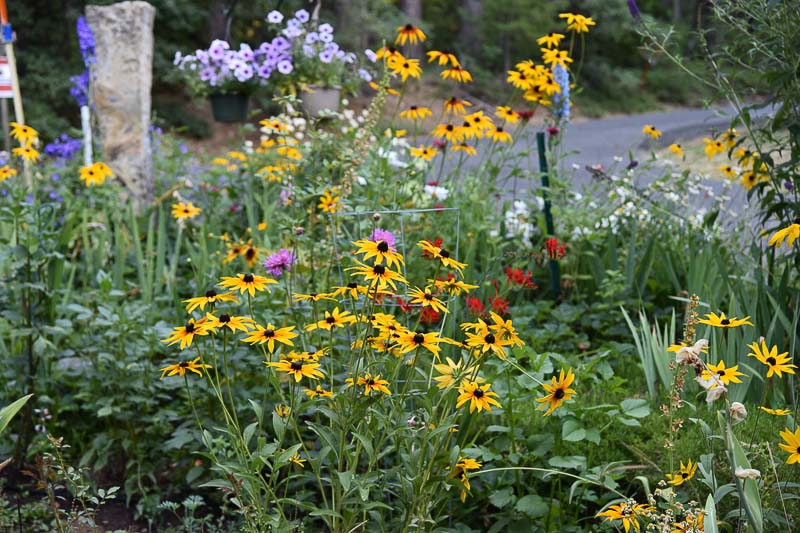
I cannot believe the proliferation of really bad garden advice even on some top-ranking ‘garden’ websites. There is no backing to the claims at all, they just are repeating bad advice for the sake of clicks and it is irresponsible.
And with the proliferation of AI-generated information (which scrapes bad advice from the internet to serve to you as fact) the gardening internet is rife with damaging information that is shoved to the top of searches.
Yes, that includes PINs on Pinterest and Instagram reels promoting potentially harmful practices to newbie gardeners and they are so popular. People want to believe they can pull ingredients from their kitchen or pantry to solve issues in the garden but they have no idea of the damage they can cause.
I will probably add to this article as I find more and more poor advice gain popularity so be sure and come back from time to time to see what is new.
Epsom Salt for Plants?
This one is huge across Pinterest! This is one people swear by and I will probably get hate mail on busting this garden myth. People cling to this as if it were the holy grail. They base their faith in this chemical (yes, Epsom salts is a chemical) on anecdotal evidence and not on true science.
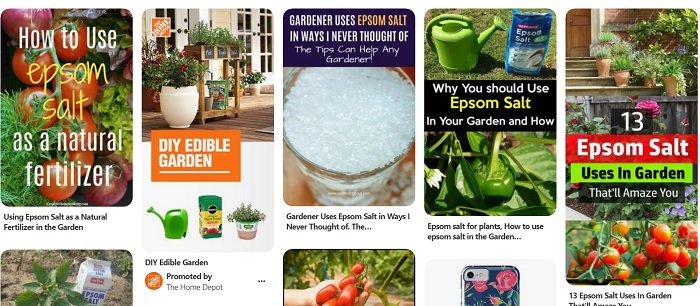
Not sure what anecdotal means? Here is the definition: anecdotal (of an account) not necessarily true or reliable, because based on personal accounts rather than facts or research.
To show the danger of anecdotal results just think about bloodletting. Do you know it was used and sworn to be the cure-all for over 3000 years? Only in the 19th century was it called into question. Bloodletting was a deadly practice that killed hordes of people but it was used because it “seemed” to work. Some recovered from the illness after being bled so it must’ve cured the disease.
You may be saying to yourself, “hey Pam, you often break garden rules because you have tried methods that are not typical and you stick with them because they work for you”.
You would be correct, but I always do my research to make sure what I am doing isn’t something that will potentially cause harm to me or the environment.
So if you want the real scoop on Epsom Salts read this article. I have delineated the claims of using it in the garden and tell you why it is not the miracle product as touted. Not only is it not the miracle garden worker but it can become toxic to the environment.
Interesting fact: Myths proliferate and one may surprise you. Did you know that the 10,000 steps motto for good health is not a recommendation from health professionals but was a marketing scheme of a pedometer manufacturer?
Vinegar in the Garden, why not?
This is another one that pervades Pinterest. You will see Pins that read “10 Ways to Use Vinegar in the Garden” or “White Vinegar is a Gardener’s Best Friend”.

Don’t buy it!
Vinegar is not the weed killer they claim. It will kill topical growth and small seedlings but not the roots. To kill the entire plant, roots and all will take repeated use.
It will take a lot longer than you think and you will need to use a lot of vinegar. (stay away from horticultural vinegar, it is highly caustic and can cause severe injury.
Even breathing the mist as you spray can cause lung damage or getting the mist on your skin can cause burns! So what is wrong with using vinegar?
Plenty!
The whole point of moving away from products like Roundup is environmental concerns. But did you know that using vinegar can cause damage to beneficial creatures in your garden?
It is just as caustic to our organic garden friends like toads, lizards, and insects as it is to the plants you are trying to be rid of.
What about the anti-fungal properties of vinegar? Now that would require you spray it on plants.
Conundrum: So is vinegar an herbicide to kill plants by spraying them with it or is it beneficial to kill fungus on plants by spraying them with it?
What about adding table salt to vinegar to improve its effectiveness?
Just don’t! Here is why:
Unlike synthetic or organic pesticides, which break down over time, the sodium ion does not break down.
It might be washed away by water to another location, like the soil where you grow favorite plants, or into local rivers and lakes, but it will always be somewhere.
Though we use it all the time salt is a toxic metal ion that will not just go away. It pollutes your soil and then gets washed away to other places, it doesn’t just break down organically and become something safe.
Here is an interesting excerpt from a research paper on vinegar as an herbicide: If you are not worried about the safety aspect but simply don’t want to purchase a Monsanto product – don’t forget that vinegar is often made from corn, and most corn in the US has the Roundup Ready trait developed by Monsanto. So the vinegar you are using to spray your weeds is probably made from corn that was sprayed with glyphosate: the very herbicide you were trying to avoid. Read rest of article here
Start Rose Cuttings in Potatoes
Though not dangerous this myth is just plain a waste of time and potatoes. I actually tried it along with my normal methods of Starting Rose Cuttings.
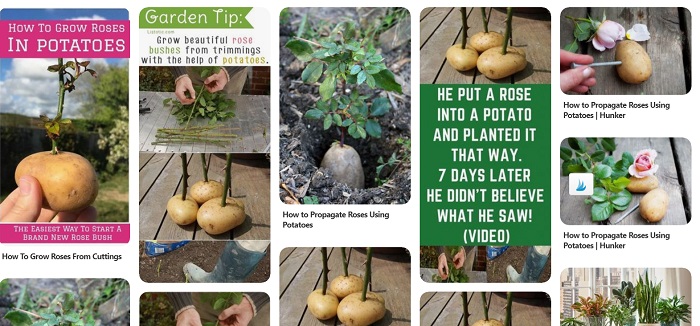
The potato method never did develop roots on the rose cuttings while the ones I did the normal way, 80% rooted. So if rooting roses in a potting medium is so much more effective why in the world would we start them in potatoes?
Source: Me… through years of testing
Kitchen ingredients make safe Pesticides
Garlic Spray: Since we can eat garlic and it is good for us what could possibly be wrong with using it as an organic pesticide?

Good question because it can be effective at killing harmful pests in our garden. But is that all it kills? No!
Garlic-based insecticide is a broad-spectrum pesticide, it is non-selective. That means it also harms beneficial insects like bees and butterflies.
Interesting fact: Homeowners use approximately 10 times more chemicals per unit area of land than farmers do [EPA figure]. In urban areas, this is obviously a major contributor to non-point source pollution
If everyone starts using Broad Spectrum pesticides whether from the kitchen or from the garden center shelves, what will be the result? And because people feel the homemade concoctions are safe they are much more liberal with them.
Can you see the danger?
Baking Soda eliminates Mildew on your Plants
Sorry, another common myth. While higher concentrations can hinder the growth of fungi it does not eliminate plants already infected. And it only showed decent field results when used in conjunction with horticultural oils.
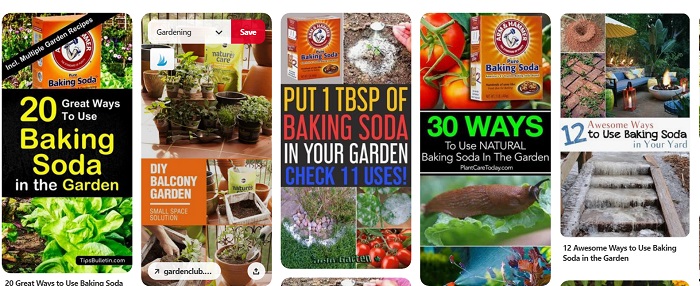
And the caveat is that at the higher concentrations it can cause damage to fruit and interveinal chlorosis on leaves.
Coffee Grounds in the Garden
As you note in the photo there are different claims for using coffee grounds in the garden.
Some say “never” and others proclaim they tell you how to use them properly.
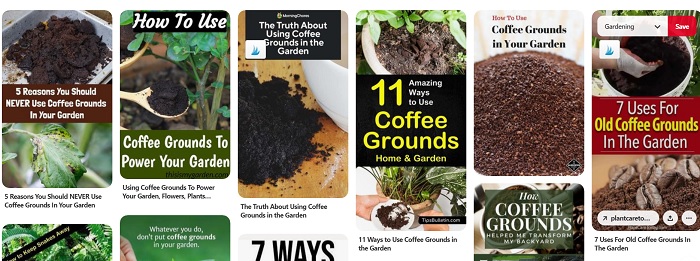
Who is right? Well, neither actually. The claims about how to use them properly included myths of coffee grounds’ ability to change the ph of soil under acid-loving plants, of how it repels pests all around your garden, and how it feeds the worms who will, in turn, eat other garden pests (say what?)
None of those statements is true. You can use coffee grounds in the garden but sparingly. Use no more than 1/2 an inch on the soil surface and if used as an addition to compost piles keep it to less than 20%.
Coffee grounds can both hinder and /or help plant growth depending upon the plant. Unless you do thorough research on what you are using it for it is better to be judicious and just add to your compost pile.
Demystifying the use of used coffee grounds in the garden!
Banana Peels for Roses?
What about adding banana peels to your planting hole or around the soil of roses? Does it help flowering as many claim?
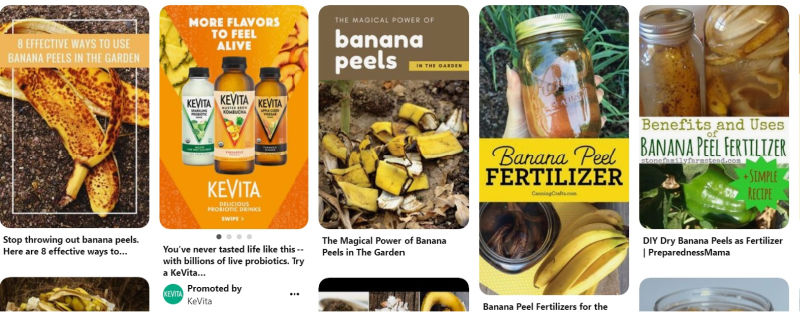
Many of the reports say that adding banana peels will add potassium to the soil, therefore, increasing blooms on roses.
First of all, it is Phosphorus, not Potassium that encourages more blooms, and secondly bananas are not that high of a source of potassium.
Potatoes, beets, and tomatoes have a higher amount of potassium. Even a glass of chocolate milk is higher. So why aren’t they recommended for use on roses?
Not only is it not the high potassium boost you are looking for but it takes quite some time for it to break down into something usable by your plants.
Banana peels are another plant-based form of organic matter and they do add value to your soil but they are not the super boost many tout. Adding them to your soil will not cause any harm. You are much better off going with a good organic compost than any one thing.
So toss those banana peels into your compost bin and create a nutritious well-rounded treat for your entire garden.
Gardening by Zone
You can find many cheat sheets or lists of what you can plant when by USDA garden zones. These are very misleading to a new gardener.
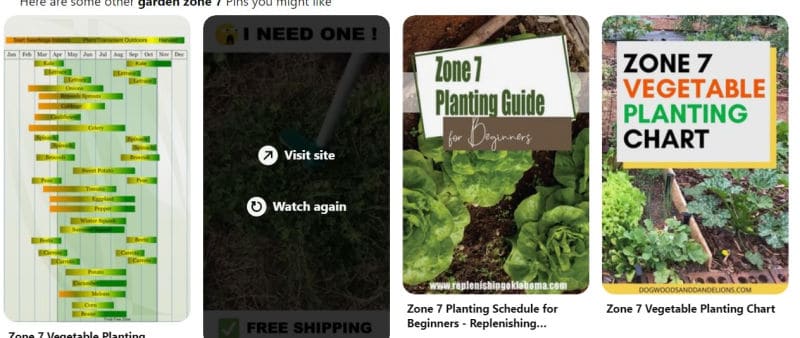
Garden zones are not an indicator of your gardening season or when you can plant certain flowers or veggies in your home garden. Nor do they tell you the first and last frost date, that is entirely different information and has more bearing on when to plant than your zone.
Eggshells in the Garden
Another garden myth going around is adding eggshells to the garden to boost calcium levels in the soil, kill pests or to cure Blossom End Rot.
Sorry, you will be disappointed but you can read all about Eggshells in the Garden here.
Tums for Blossom End Rot
Using Tums (antacid tablets) is another popular myth I have found making its rounds to cure blossom end rot. It is based on the premise that they are primarily calcium. To understand why they won’t work as purported read…
Find out what really causes Blossom End Rot and how you can prevent it. Save the Tums for your belly.
Pruning Tomatoes to Get More Fruit
This one is even present on many local extension office websites. To find out the facts, based on a study done at Purdue and my own trials in my garden read this article here.
The Bone Meal Myth
Sometimes myths can sound reasonable and yet when you deep dive they end up doing the exact opposite of what you wanted. Such as bone meal being a garden amendment to aid root development and bloom production. Find out the facts about using Bone Meal in the garden!
Those are just a few of the tips and advice I have found that are promoted heavily on the internet and are just pure hokum. I understand that people want to steer clear of harmful products and methods yet they gravitate towards things that can be just as dangerous because of their seeming safety.
If you run across a gardening tip or trick that sounds wonderful yet you don’t know the science behind it do a search and make sure you do so with .edu in the search bar.
That will guide you to where there has been actual research done on any given method and will give you a better guideline and point out any potential harm it may cause.
What is the best way to grow a great garden? Start by building great soil.
Great soil feeds the plants, healthy plants can ward off pests and disease, and don’t think every flower or plant has to be perfect. Live in harmony with nature and see how it cares for itself.
build great soil for a healthy garden
Click below to see how you can easily build your soil, naturally!
Seed Starting mix Vs Potting Soil
This is not really a myth but I do see popular gardening bloggers/vloggers stating that you need to use seed starting mix to have success in starting seeds.
I actually did a side-by-side comparison using both mediums to start seeds and I shared my experience. Many seed starting mixes have a peat moss base which is not necessarily an environmentally safe choice.
Cardboard in the Garden
Another troubling trend is the use of cardboard in the garden as a quick way to block weeds and start new garden beds.
Read this before going there and then decide if it is the path for you.
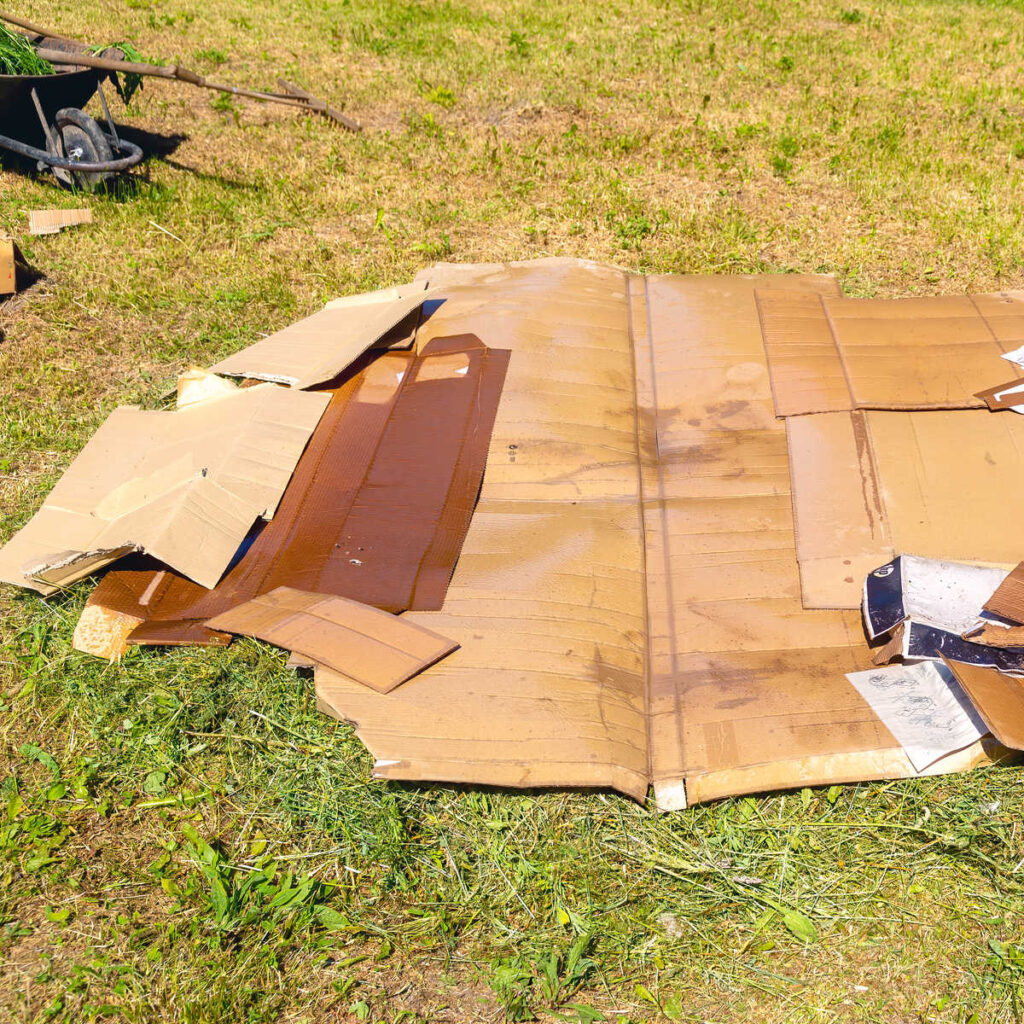
Happy Gardening!

Baking soda Source and here
Source: Garlic Pesticide
Coffee Grounds Source
Vinegar and salt
Banana Peels

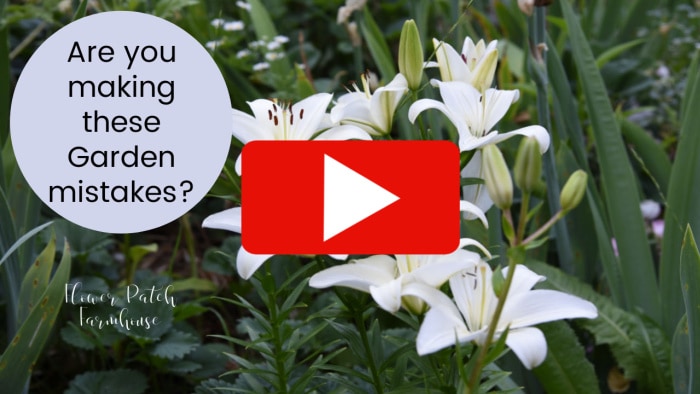
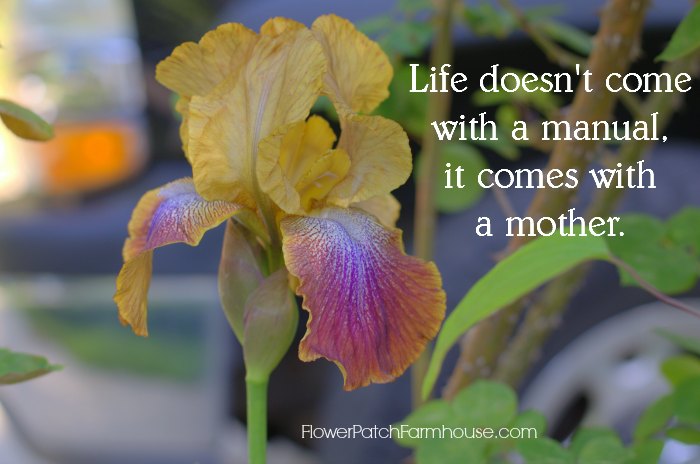
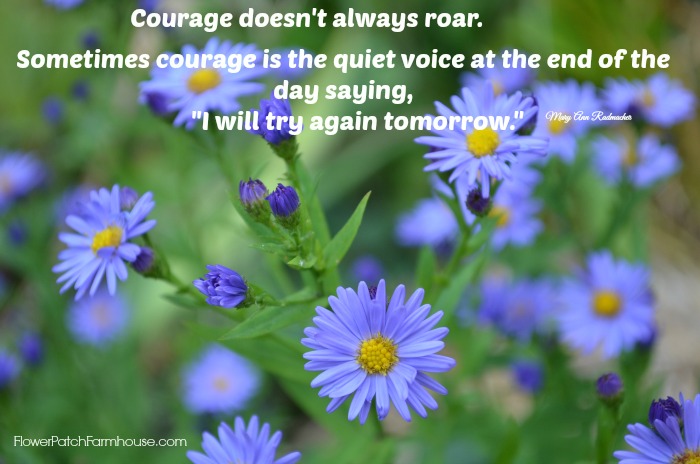
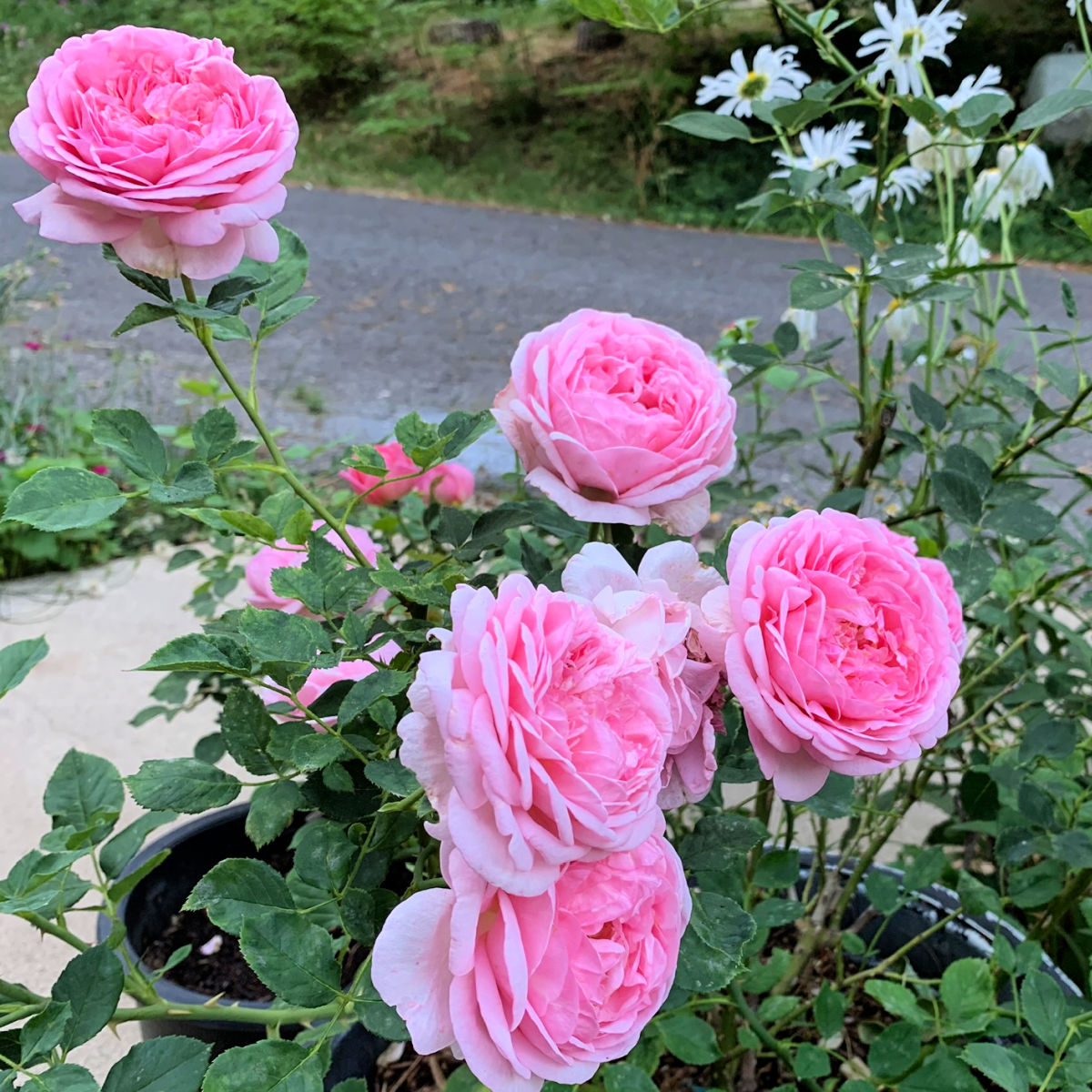
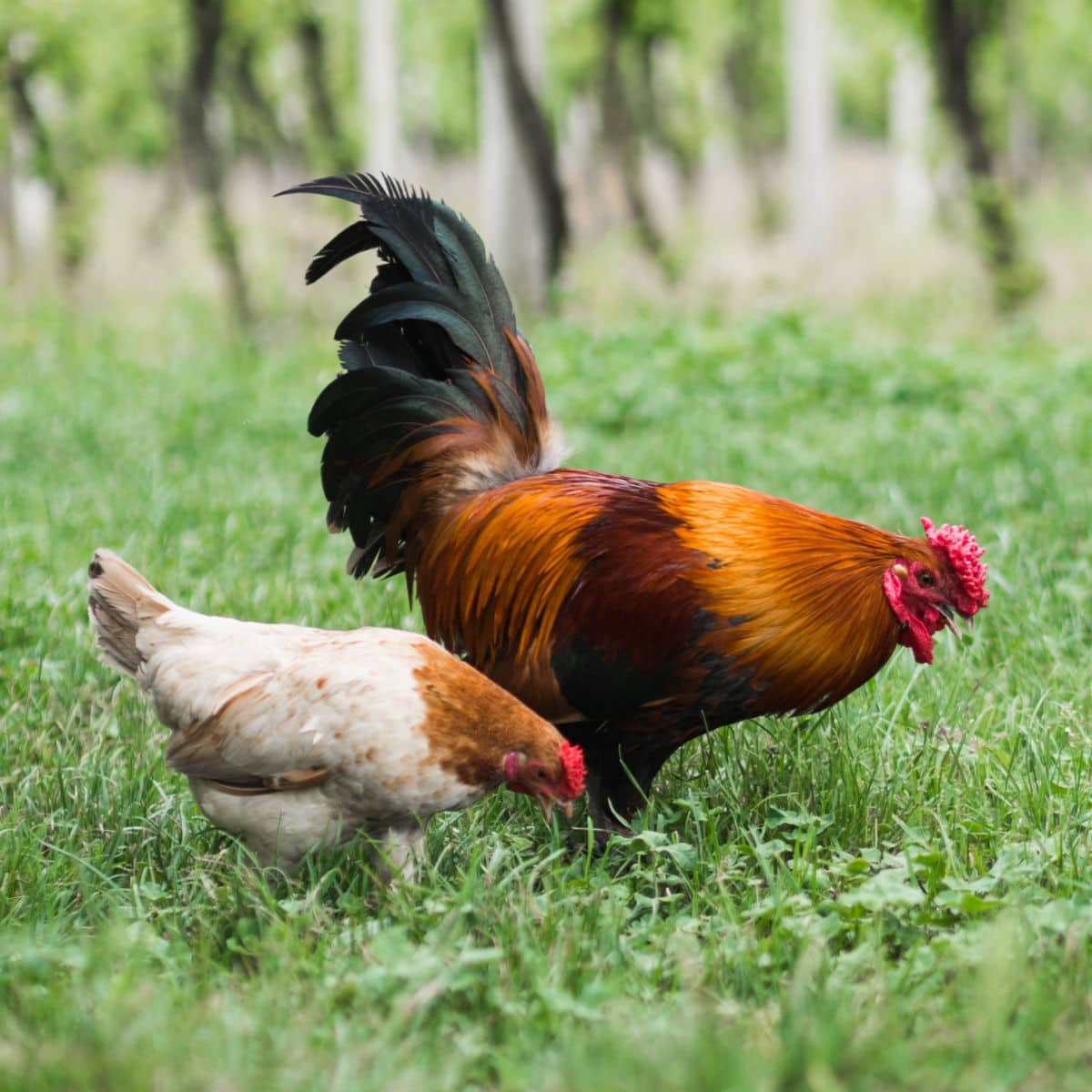
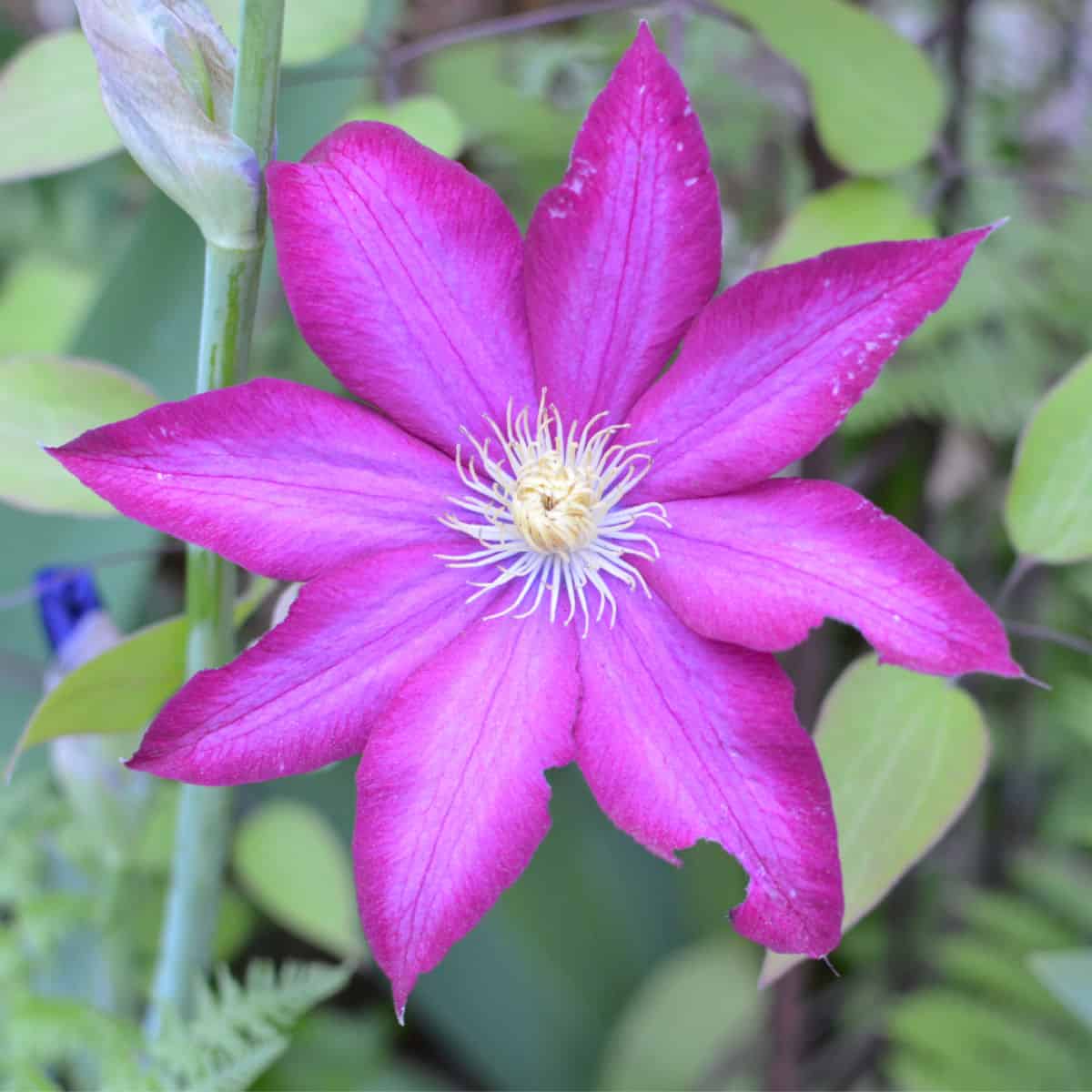
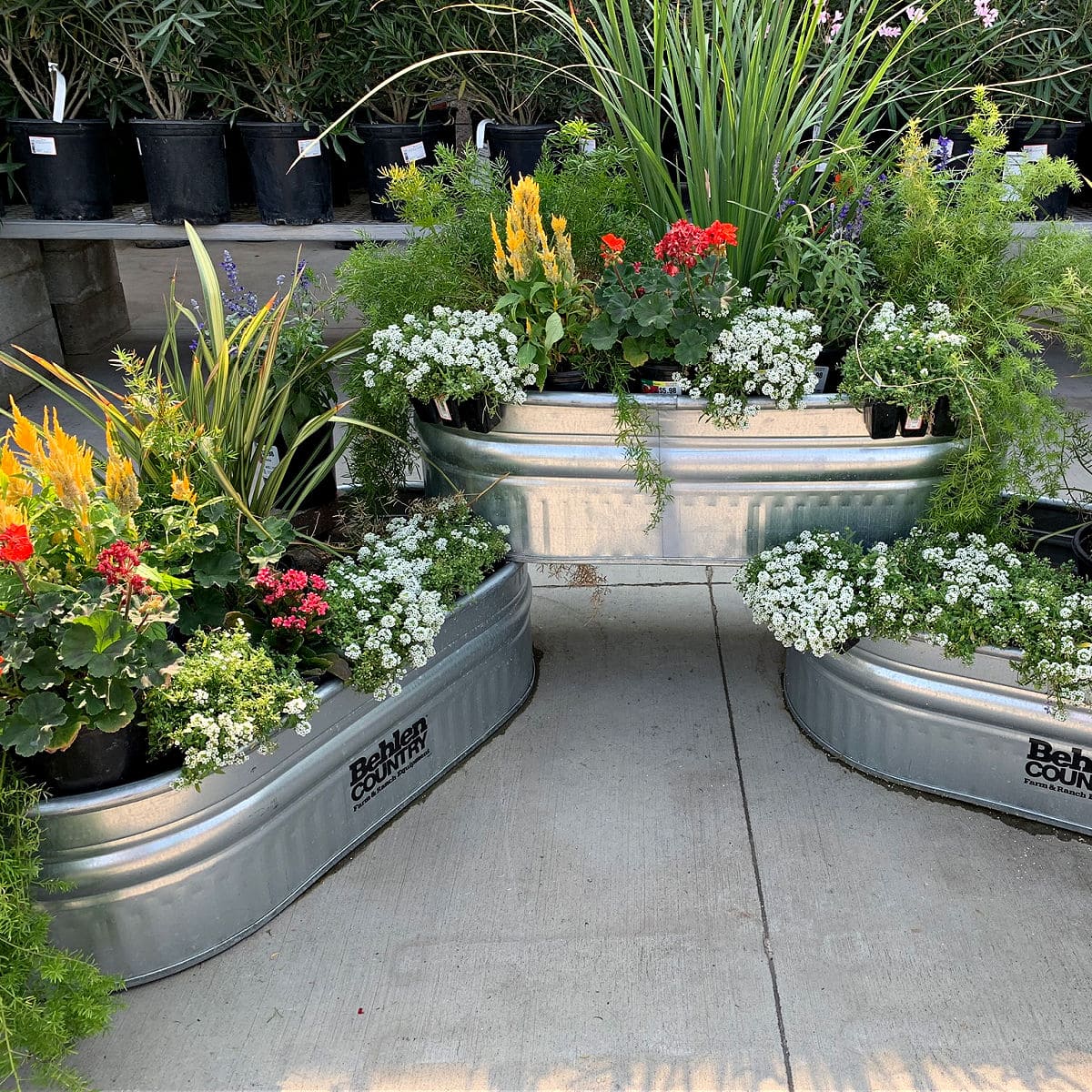
Hi, there! I had a 6-foot fenced garden but it was no obstacle for the deer, of course. I put stakes in the ground about 3 feet from the outside of the fence with the tops of the stakes about 3 feet high. Then I wound fishing line around the tops of the stakes encircling the fence. The deer would walk up to the fishing line and stop. They could feel it on their legs but couldn’t see it and it kept them from jumping. So, depending on how large your garden is, this might be an option and if the line gets broken, it’s a cheap fix.
I added that info to the article, thank you for asking.
After reading through this article I have a question. Do banana peels actually help roses?
I wish I could but I have not had any experience with that. Sorry.
Pamela,
Can you give us gardeners some advice on what to use to get rid of thistle?
I tried digging it up and now I have twice as much!
Thank You
No I haven’t. But I would think they could be a resource for mold or mildew to grow. What is the benefit?
Pamela, I appreciate all the research you’ve done to provide us with this important information. One other thing I wonder about is tea leaves. I’ve read they are good to sprinkle on the soil of house plants. Have you read anything about that?
Thank you for the advice.
Thank you so much for the information. Sharing!
Honesty – how refreshing!
I think Epsom salts killed some rose bushes we had. Its a long story, but the epsom salts thing had me fooled
Thank you. Learned some things and will know where to research. Will share for sure.
Interesting that your article appeared today as I have been reading up on things to try in
my garden this year. Thank you so much for your heads up information about the weird things people swear work. Think I’ll stick with Mother Nature and the few things I’ve used for years! Love all your tips and look forward to your emails here on the East Coast in Virginia! Now if you could just tell me how to keep the deer from eating everything? Laughing . . . ! Live just across from a park. This really limits what I can grow because they defeat fencing.
Yes, coffee grounds in a composter is just fine that is where I put mine. 🙂
FABULOUS article. I sent it on to a friend who constantly sends me the Pinterest nonsense. She needs to read information and advice from a pro! I’ve been adding coffee grounds every so often to my composter. Is that okay? Thanks so much!
Thanks for all the research you’ve done! Could’nt agree more!
Wow, Pam, no hater here! You are spot on. I love it.